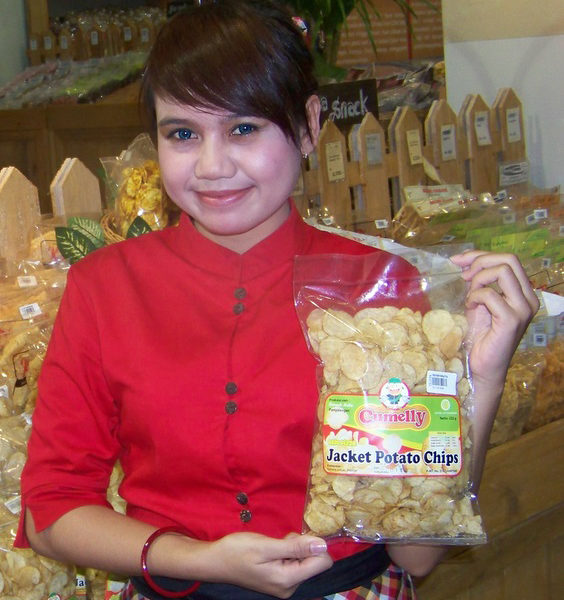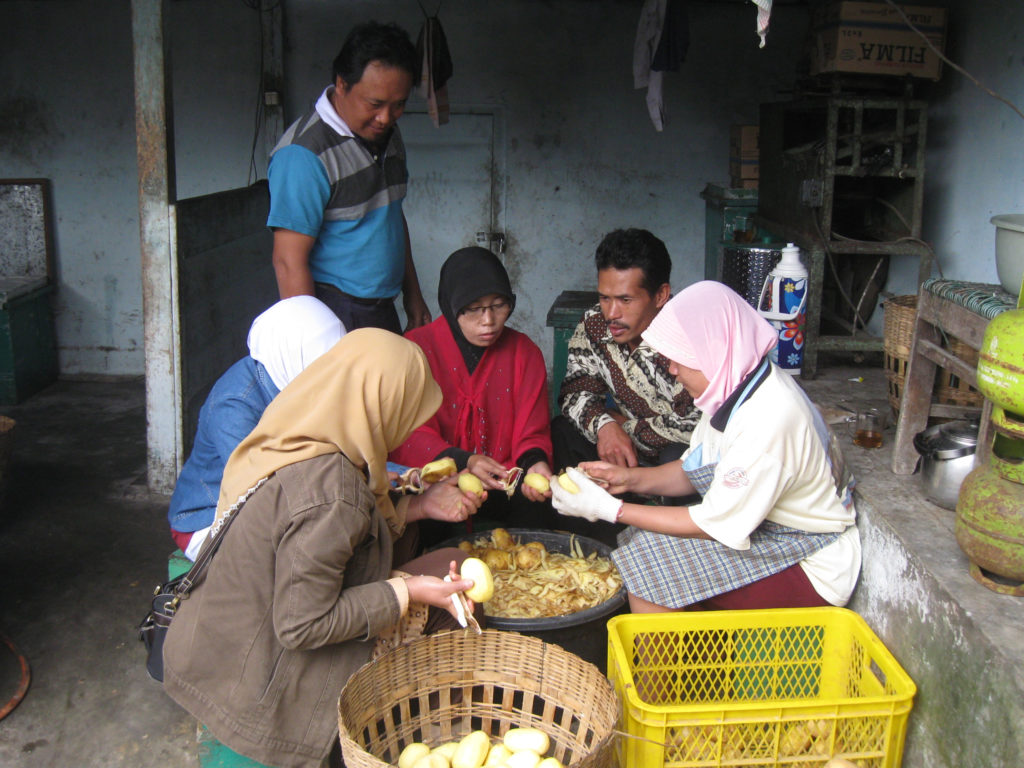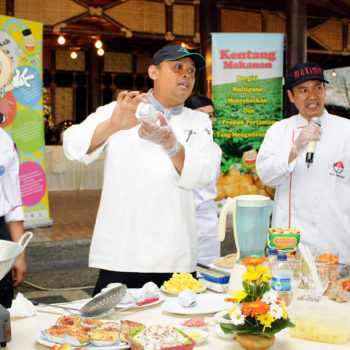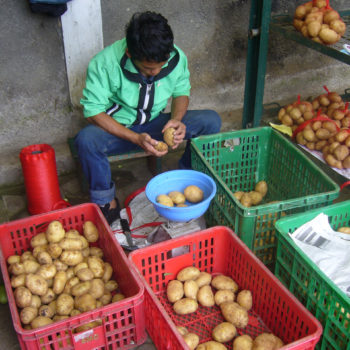Donor: The International Fund for Agricultural Development (IFAD), The European Union (EU)
Country/Region: India, Philippines, Vietnam/Asia Pacific; Bolivia, Ecuador, Peru/South America
Leveraging Value Chain Expertise Globally
Throughout 2016, CIP leveraged the Participatory Market Chain Approach (PMCA) and other agricultural value-chain expertise developed in the Andes to Upland and Coastal Communities of the Asia Pacific region through FoodSTART+.
Implemented with the financial support from the International Fund for Agricultural Development (IFAD) and The European Union (EU), FoodSTART+ develops, validates and implements effective partnership strategies with IFAD investment projects to promote roots and tuber crops for food security. “It seeks to disseminate strategies that can assist smallholders and other constituencies with enhancing business skills and developing market opportunities,” says Andre Devaux, CIP’s regional director for Latin America.
The PMCA – first developed in Peru via sponsorship from the Swiss Agency for Development and Cooperation – has helped to increase the competitiveness of native potato value chains and to improve the livelihoods of Andean small-scale farmers, their families and their communities. It has subsequently been piloted in both Sub-Saharan Africa and in Asia with adaptations made for different root, tuber and vegetable market chains. It is still used in the project implemented by CIP – in collaboration with IFAD – in the Andes, taking advantage of the lessons learned from its validation in other parts of the world.


The PMCA approach has spurred the establishment of Farmers Business Schools (FBS) developed by CIP through an Australian Centre for International Agricultural Research (ACIAR)-funded project that aimed to link vegetable farmers with key markets in West and Central Java, Indonesia. FBS is a participatory action learning approach to support farmer groups’ participation in – and benefit from – agricultural value chains. Guided by a value chain framework, the FBS comprises a series of group-based experiential learning activities over a production-marketing cycle while interacting with other chain actors and stakeholders. FoodSTART, in partnership with the IFAD investment project CHARMP2, brought and adapted the FBS in the Philippines. The FBS is now being rolled out in India and in Vietnam through FoodSTART+ with a broader model integrating climate change and gender perspectives.
“FBS builds farmer capacity to work with other market chain actors, to strengthen their business and marketing skills as a necessary compliment to PMCA for the development of new agribusiness,” Devaux says. “Participants are seeing new and additional profits through increased value addition and sales” of potato and other crops.
The cross-learning effort has powerful potential reach. Successfully applying information gleaned from work in the Andes to other parts of the world validates the approach in other regions, creates opportunities for it to be improved and demonstrates CIP’s efficiency at using donor funds.






